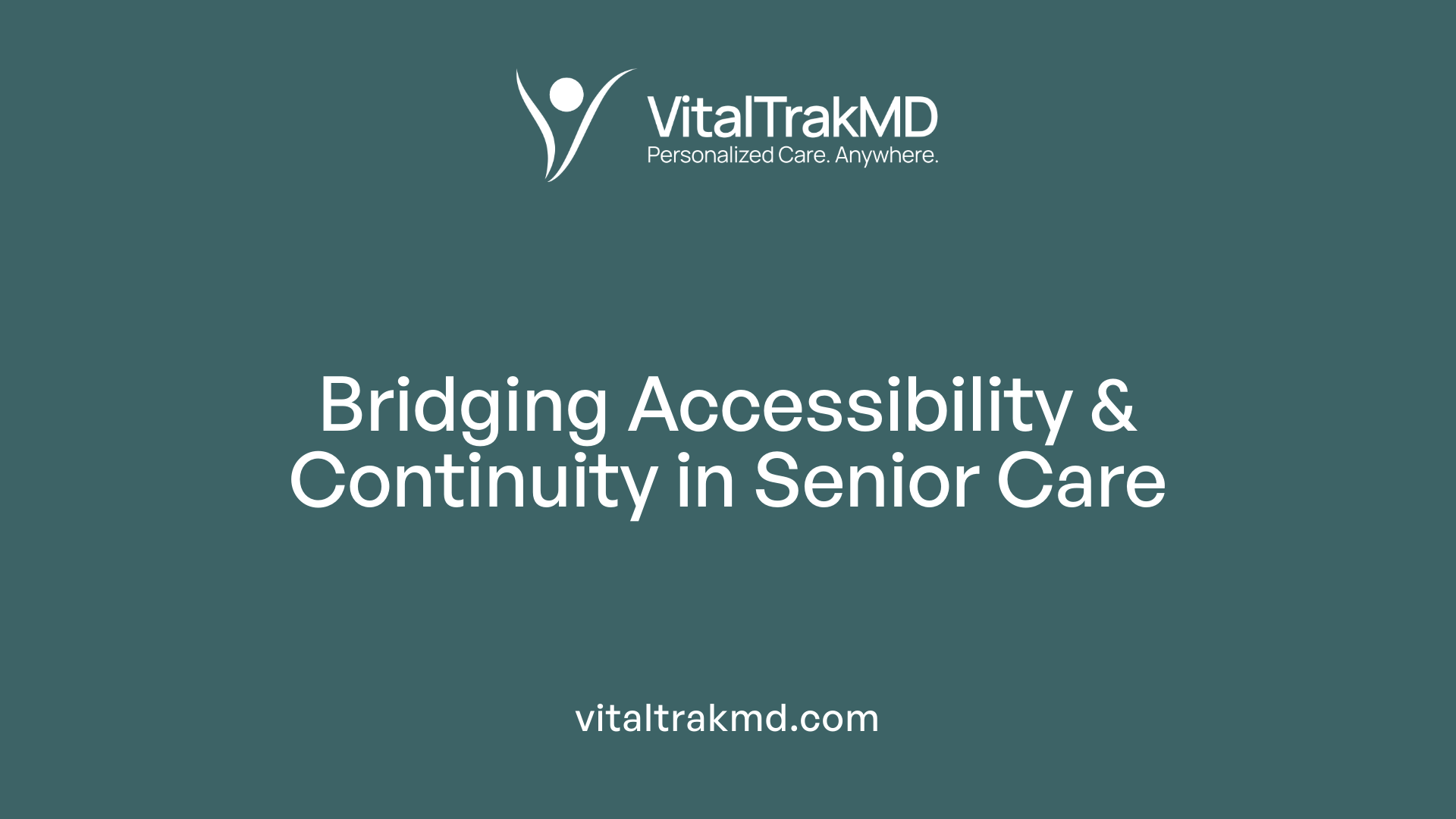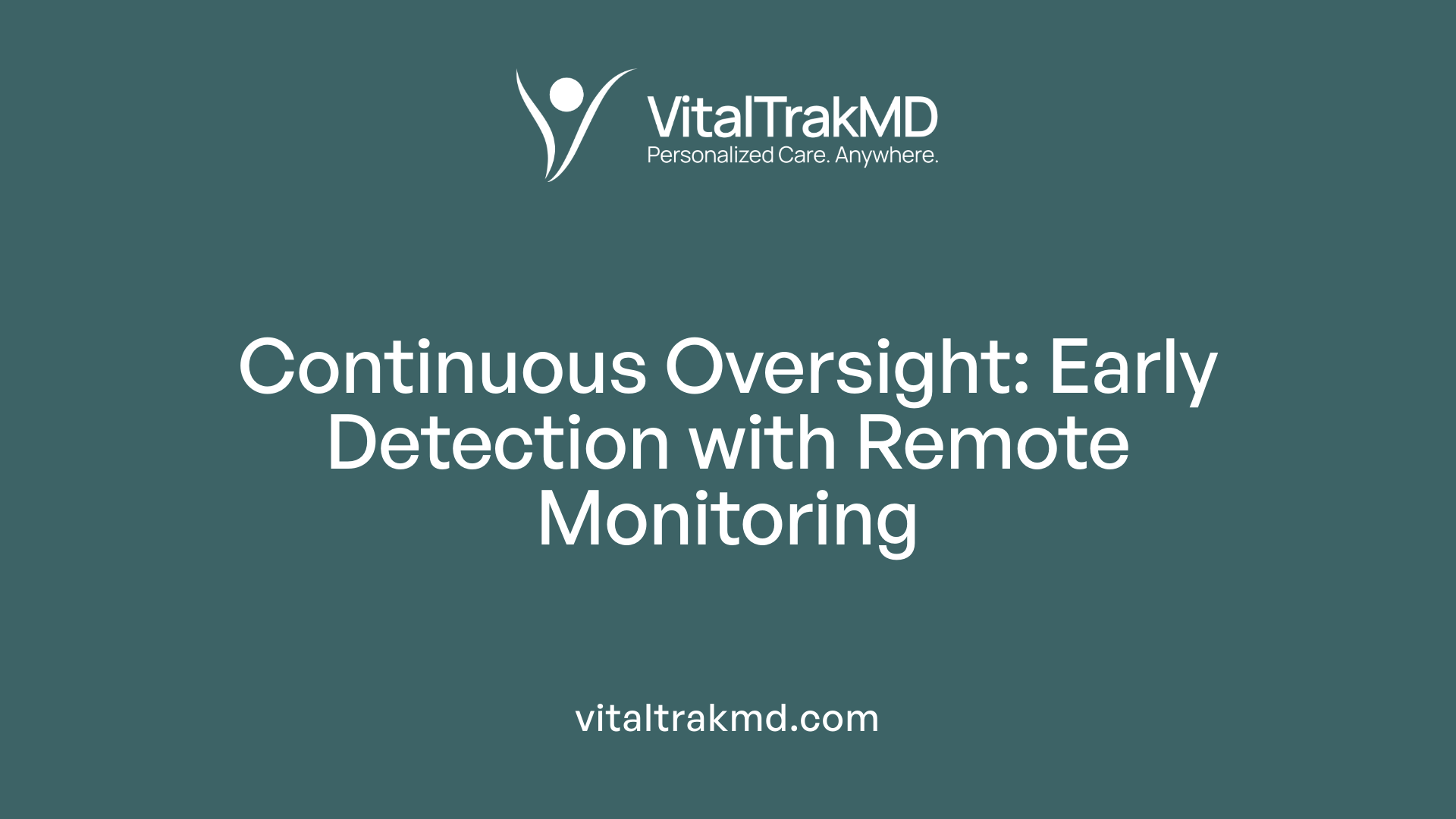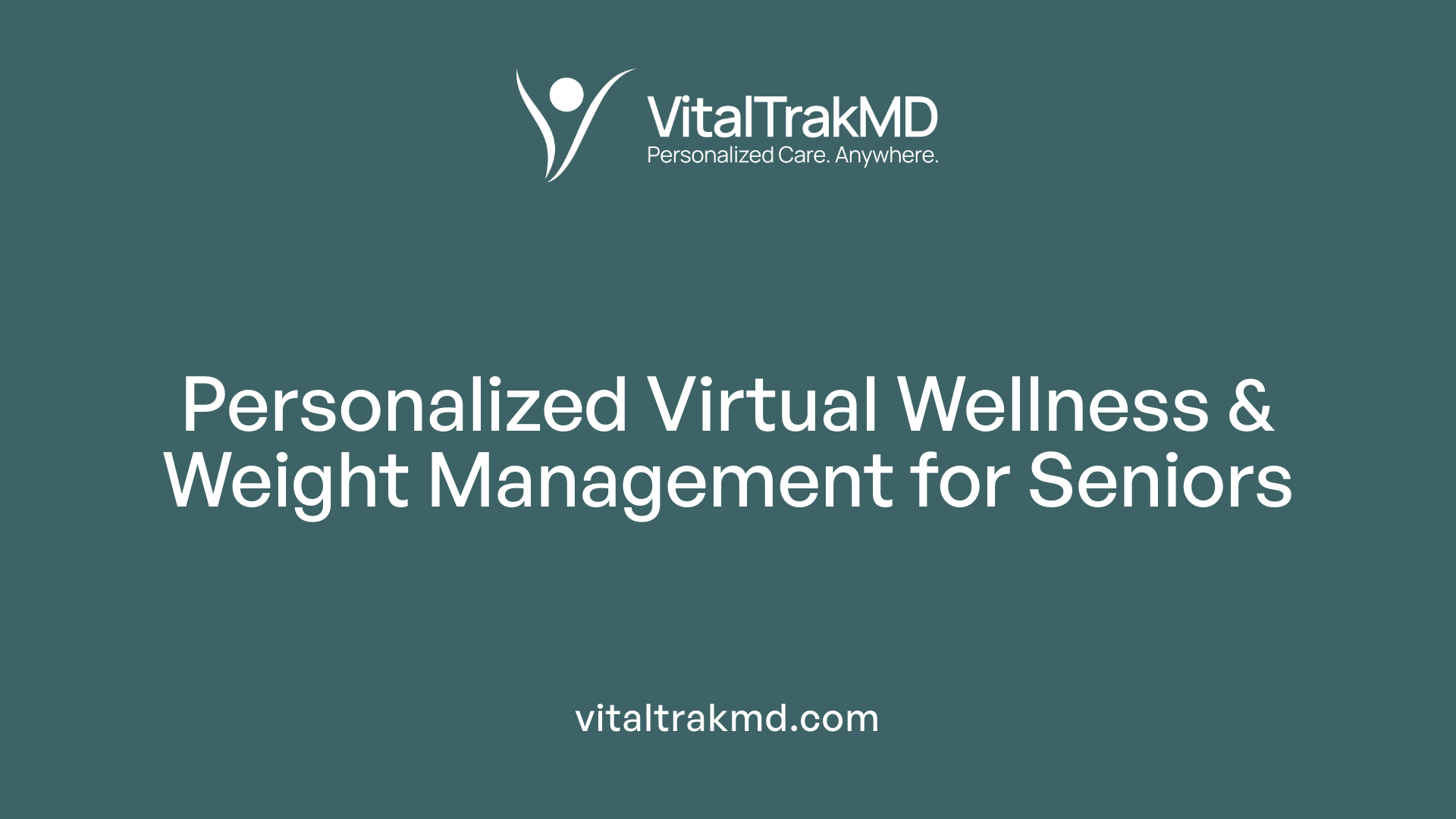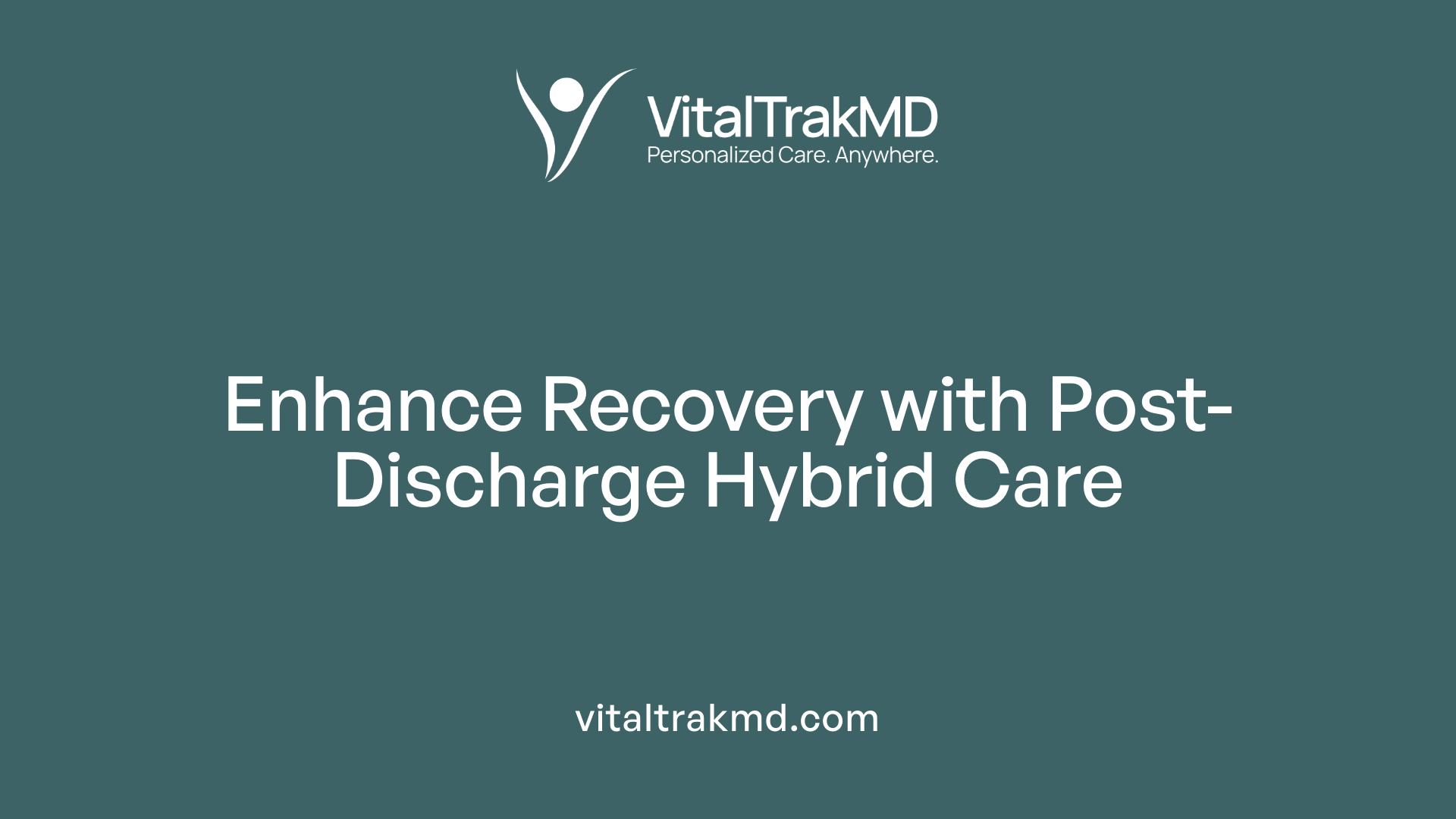How Hybrid Healthcare Helps Seniors Monitor Recovery Progress Effectively

Embracing Hybrid Healthcare for Senior Wellness and Recovery
Hybrid healthcare models, combining virtual and in-person care, are revolutionizing how seniors monitor their recovery progress. By integrating continuous remote monitoring, personalized virtual programs, and hands-on support, these models improve health outcomes, promote wellness, and empower seniors to maintain independence throughout their recovery journey.
The Hybrid Healthcare Model: Bridging Accessibility and Continuity in Senior Care

What is a Hybrid Healthcare Model?
Hybrid healthcare models integrate both virtual and in-person medical services to deliver flexible, comprehensive care. This approach enables patients, especially seniors, to access healthcare remotely while still benefiting from direct face-to-face visits when necessary. LifeBridge Health’s Center for Virtual Care exemplifies this by offering virtual primary care, chronic disease management, urgent care telemedicine, and remote patient monitoring.
Benefits of Combining Virtual and In-Person Visits
By merging telehealth with traditional visits, hybrid models enhance patient access and convenience. For seniors managing chronic illnesses like hypertension or heart failure, remote monitoring continuously tracks vitals, allowing early detection of complications. Virtual visits reduce travel burdens and exposure to infections, while in-person appointments maintain thorough physical assessments. Post-discharge support through telehealth, including reminders and virtual check-ins, promotes recovery and reduces hospital readmissions.
Hybrid Care and Seniors' Recovery Monitoring
Hybrid care programs facilitate seamless transitions from hospital to home. After discharge, seniors receive coordinated remote monitoring combined with occasional in-home care services such as blood draws or medication management. This approach supports individualized recovery plans emphasizing physical, emotional, and social well-being. Enabled Healthcare, for example, pairs in-person and virtual evaluations with wellness coaching like mindfulness and adaptive yoga, enhancing seniors’ overall health while minimizing geographic barriers.
How Has COVID-19 Influenced Hybrid Healthcare Adoption?
The COVID-19 pandemic accelerated telemedicine adoption due to social distancing and safety concerns. Healthcare systems rapidly expanded virtual offerings to maintain access amid lockdowns. The success of these models during the pandemic underlines their value in chronic condition management, routine care, and urgent consultations. Moving forward, hybrid healthcare is poised to remain integral to healthcare delivery, blending technology with personalized care to meet patients’ diverse needs.
Supporting Healthy Lifestyles Through Care Programs
Care programs in hybrid models help individuals maintain healthy lifestyles by delivering tailored education and continuous support. Using virtual coaching, nutritional guidance, and stress management, these programs encourage behaviors that optimize health. Regular virtual check-ins promote accountability, while remote monitoring tracks progress, enabling timely interventions to prevent complications and promote wellness.
Remote Patient Monitoring: Continuous Oversight to Detect Early Complications

What technologies are used in remote patient monitoring?
Remote patient monitoring employs various technologies such as blood pressure monitors, oxygen level devices, and other vital sign trackers. These devices transmit health data from patients' homes to healthcare providers, enabling continuous oversight.
How is remote monitoring applied for chronic conditions common in seniors?
For chronic illnesses like hypertension, congestive heart failure, and chronic obstructive pulmonary disease (COPD), remote monitoring allows consistent tracking of key health metrics. This helps providers detect early signs of complications and adjust treatments without requiring in-person visits.
What benefits does remote monitoring provide in post-discharge support and early intervention?
After hospital discharge, telehealth programs use remote monitoring combined with regular telehealth appointments and text reminders to support patient recovery. This continuous engagement helps patients manage their health effectively, promoting healing and identifying issues before they become severe.
How does remote monitoring help reduce hospital readmissions?
By providing timely data and enabling early detection of potential problems, remote patient monitoring facilitates rapid interventions. This approach has proven to lower hospital readmission rates by addressing health concerns promptly, improving patient outcomes and reducing healthcare costs.
Patients with chronic conditions or recent hospital stays benefit greatly from these remote care models, which offer a flexible, patient-centered approach to managing health at home.
Personalized Virtual Wellness and Weight Management Programs for Seniors

How Do Virtual Weight Loss and Diabetes Management Programs Support Seniors?
LifeBridge Health’s Center for Virtual Care offers tailored Virtual Diabetes Management and Medical Weight Loss programs that provide seniors with real-time treatment adjustments and personalized plans. These virtual services include nutritional guidance, medication options, and continuous support designed to help manage chronic conditions and promote sustainable health improvements from the comfort of home.
What Role Does Nutrition Counseling and Health Coaching Via Telehealth Play?
Telehealth enables seniors to receive expert advice on nutrition, exercise, and lifestyle changes without geographic constraints. Personalized health coaching, available virtually, offers flexible scheduling and continuous engagement to encourage adherence to wellness goals. Such services help seniors maintain accountability and track progress, which is vital for lasting weight management.
How Do Virtual Mindfulness and Adaptive Exercise Classes Benefit Seniors?
Enabled Healthcare supplements medical care with virtual mindfulness sessions and adaptive yoga classes. These activities not only support physical fitness and weight management but also address emotional well-being. By incorporating mental wellness and stress reduction, these programs contribute holistically to seniors’ overall health.
How Are Weight Stigma and Mental Wellness Addressed in These Programs?
Weight stigma is a significant barrier in healthcare, with many seniors experiencing bias or anxiety related to their weight. Virtual programs provide a safe, personalized environment free from judgment, allowing seniors to engage comfortably in their wellness journey. Programs emphasize whole-person care that respects physical, emotional, and spiritual well-being, fostering mental wellness alongside physical health.
What Strategies Are Most Successful for Sustainable Weight Loss?
Effective weight management involves lasting lifestyle changes blending healthy eating, regular physical activity, and stress management. Virtual programs support these strategies by offering continuous monitoring, personalized guidance, and motivation. Setting realistic goals and receiving support from healthcare professionals and social networks ensures seniors adapt and maintain healthy habits over time.
The Role of Post-Discharge Hybrid Care in Enhancing Senior Recovery Outcomes

How Do Telehealth Follow-Ups and Text Reminders Support Recovery?
Post-discharge hybrid care relies heavily on telehealth follow-ups combined with timely text reminders to keep patients, especially seniors, engaged and compliant with their recovery plans. These virtual check-ins allow healthcare providers to monitor patients' progress, address concerns rapidly, and adjust treatments if necessary without the need for travel. Text reminders serve as prompts for medication adherence, upcoming appointments, or critical health monitoring, which encourage consistent participation in recovery activities.
How Is In-Home Nursing Integrated with Virtual Check-Ins?
Hybrid care models pair virtual visits with essential in-person nursing visits to provide comprehensive post-discharge support. For instance, Mayo Clinic’s Advanced Care at Home program integrates daily virtual visits by providers with in-home visits from nurses, paramedics, or other care team members. This blend ensures that patients receive hands-on care when needed while benefiting from the convenience and frequency of virtual monitoring, such as vital sign tracking and technology-assisted assessments.
What Are the Benefits Regarding Hospital Readmissions and Patient Satisfaction?
Studies on hospital-at-home programs, including the Mayo Clinic model, have demonstrated significant reductions in hospital readmission rates due to early detection of complications and continuous monitoring. Patients also report higher satisfaction levels because they receive personalized, attentive care in the comfort of their own homes, reducing stress and exposure to hospital-associated risks like infections and falls.
What Examples Exist of Successful Hospital-at-Home Hybrid Care Models?
Mayo Clinic’s Advanced Care at Home program exemplifies effective hybrid care by delivering hospital-level treatments through a combination of virtual consultations and in-person nursing services. Patients with conditions like heart failure or pneumonia benefit from daily virtual interactions supported by medical technology and occasional in-home procedures such as lab tests or wound care. The program has treated over 5,500 patients across multiple states, showcasing the viability of post-discharge hybrid care for seniors.
This hybrid approach, combining telehealth and in-home services, enhances recovery by providing flexible, continuous, and personalized care. It reduces the workload on hospitals and supports seniors’ preference to heal in their familiar home environment, ultimately improving health outcomes and quality of life.
Comprehensive Wellness Approaches: Holistic Care Programs That Foster Healthy Aging

Incorporation of Wellness, Nutrition, Stress, and Sleep Management
Holistic care programs today prioritize a multifaceted approach to wellness that includes nutrition counseling, stress reduction techniques such as mindfulness and adaptive yoga, and sleep management. These elements support overall health by addressing common contributors to chronic diseases and improving quality of life.
Holistic Whole-Person Care Focusing on Physical, Emotional, and Spiritual Health
Whole-person care integrates treatment of physical conditions with emotional and spiritual well-being, recognizing the interconnectedness of these dimensions. This approach is especially beneficial for seniors, as it supports healthier aging by improving mental health and resilience alongside managing physical health.
Benefits of Flexible Scheduling and Reducing Geographic Barriers
Hybrid healthcare models significantly increase accessibility by offering flexible appointment scheduling and virtual visits alongside in-person care. This flexibility helps overcome geographic and transportation challenges, allowing consistent engagement in wellness and chronic condition management programs, particularly for seniors.
How Hybrid Programs Address Multiple Determinants of Health for Seniors
Hybrid programs combine remote patient monitoring with personalized virtual coaching and in-person evaluations. This blend ensures continuous health oversight and tailored care plans that consider social, emotional, and medical factors influencing health. Coordinating services with primary care providers enhances individualized treatment and reduces emergency visits.
What are some effective wellness programs for overall health improvement?
Effective wellness programs comprehensively target physical, mental, emotional, financial, and social well-being. Programs that blend nutrition education, stress management practices, physical activity, and social support tend to achieve better participant engagement and sustained health benefits.
These holistic community- and hybrid-based programs align seamlessly with modern care models, offering seniors meaningful support to age healthfully in place while maintaining autonomy and overall wellness.
The Future of Senior Recovery Monitoring Through Hybrid Healthcare
Hybrid healthcare models empower seniors to monitor recovery progress effectively by combining the strengths of technology-enabled remote monitoring with personalized, in-person care. This approach supports sustainable lifestyle and wellness improvements, reduces complications, and fosters independence. As healthcare continues to evolve, hybrid care stands as a promising solution to meet the complex, holistic needs of aging populations, ensuring they receive comprehensive support tailored to their recovery and wellness goals.
References
- How the Hybrid Care Model is Transforming Patient Access
- How the hybrid healthcare model is transforming patient ...
- Advanced Care at home - Overview
- Enabled Healthcare Launches Hybrid Clinic to Help Patients ...
- Telemedicine Can Support Your Weight Wellness Journey
- knownwell, weight-inclusive healthcare for all
- Weight loss: 6 strategies for success
- Steps for Losing Weight | Healthy Weight and Growth
Recent articles
Want to Feel Better and Live Healthier?
Join hundreds of patients taking control of their health with personalized care that fits their life – not the other way around.
Rated 4.8/5 by 32+ customers







